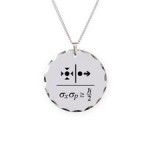 What effect do you as a researcher have on your work? Perhaps the nice, neat, medical school answer is ‘we try to minimise how we influence research’. Certainly, quantitative techniques such as randomisation, blinding and objective measurements of results aim to reduce the potential for the researcher to influence the results of a study. However, in all research we have considerable influence on the results we get. Within qualitative research this concept is even more challenging, as the researcher is both a tool used to carry out the research, and one used to measure the result.
What effect do you as a researcher have on your work? Perhaps the nice, neat, medical school answer is ‘we try to minimise how we influence research’. Certainly, quantitative techniques such as randomisation, blinding and objective measurements of results aim to reduce the potential for the researcher to influence the results of a study. However, in all research we have considerable influence on the results we get. Within qualitative research this concept is even more challenging, as the researcher is both a tool used to carry out the research, and one used to measure the result.
As a qualitative researcher, consider how you may influence the results of your research:
You might influence your research by the way you analyse questions. For example, you may have preconceived expectations of what my participants will say and thus see these responses more easily in the work, interpreting what participants say according to your own beliefs – if a teenager says ‘I feel suicidal’ I might just assume they mean ‘My life is so awful and I feel so sad that I am planning to kill myself’ because that it what your medical training tells you about patients expressing suicidal ideation. However they mean ‘I am so tired and overwhelmed with my exams/friends/family/job that I would not mind if I got hit by a bus and died tomorrow because it would mean I could just have a rest’. Your interpretation of the initial ‘I feel suicidal’ could result in drawing conclusions that are not what the participant actually meant.
And such it is particularly important in qualitative research to think about all of these things and to consider ways to reduce your impact – by discussing your research design with colleagues, by carefully considering the phrasing of questions and by asking your participants for clarification of any ambiguous statements – ‘what exactly do you mean by that?’. Furthermore, it is also important to be honest about the potential influences you have had on your research (as well as the methods you chose to use to reduce them) and to declare these honestly within your reports. This allows the audience reading your work to judge whether they trust and believe what your findings and conclusions. This ability to reflect honestly on your own influences upon the research is what is meant by the term ‘reflexivity’.
– Jess Morgan
(Personal reflexive note – I am a trainee paediatrician, a multi-methods doctoral research student, an avid knitter and a lover of cake – feel free to draw any conclusions you like!)